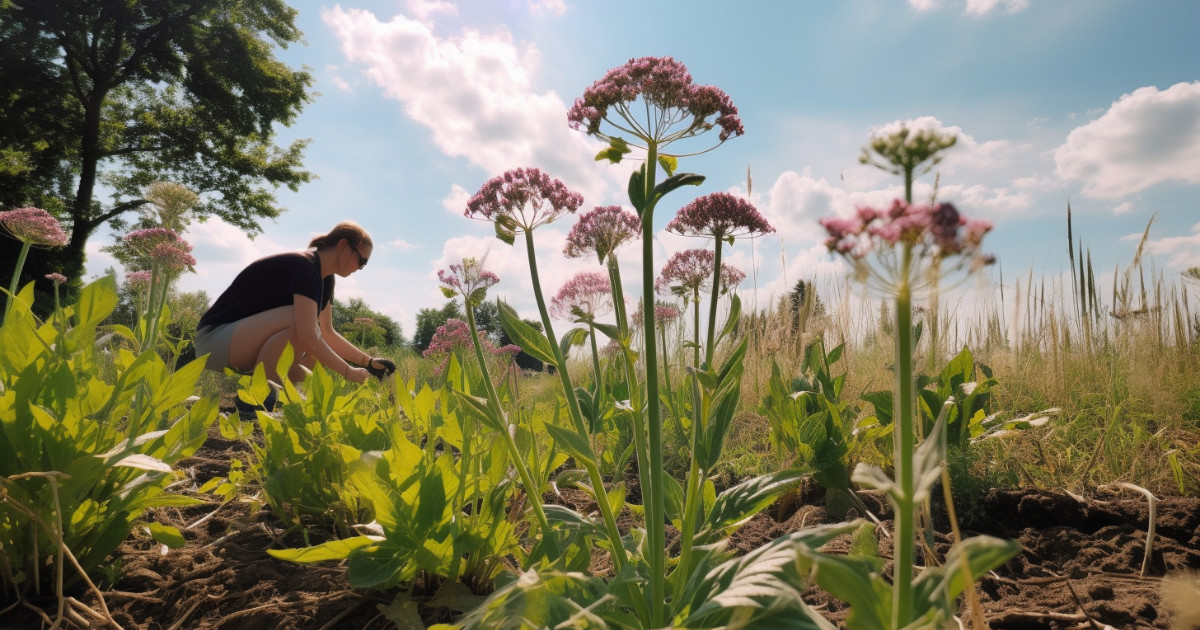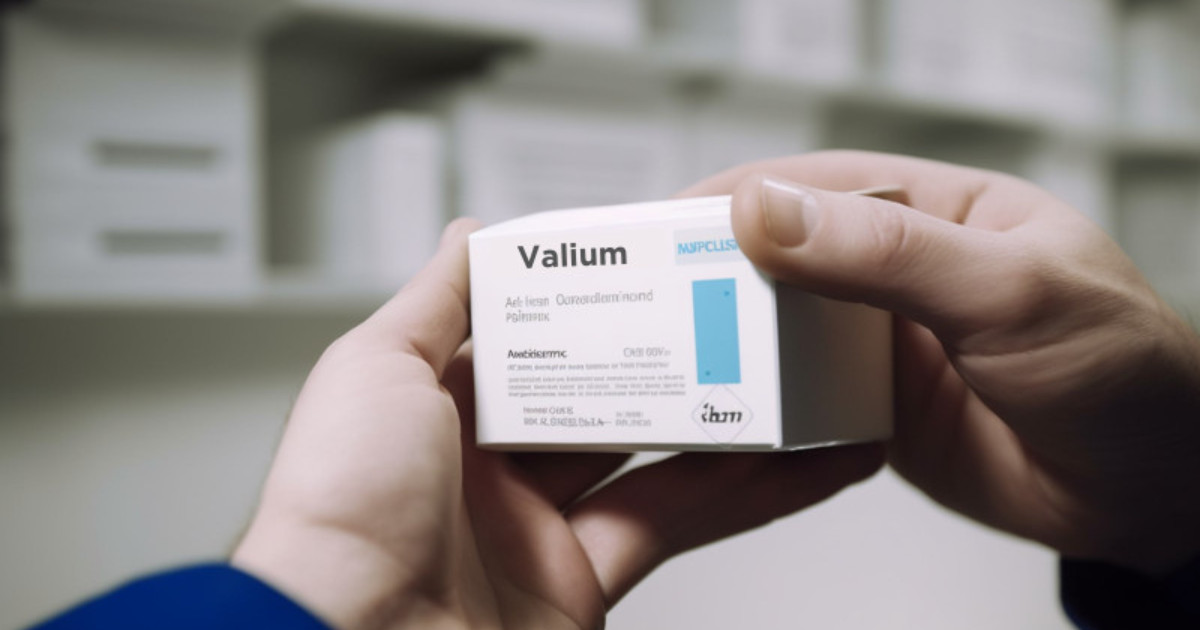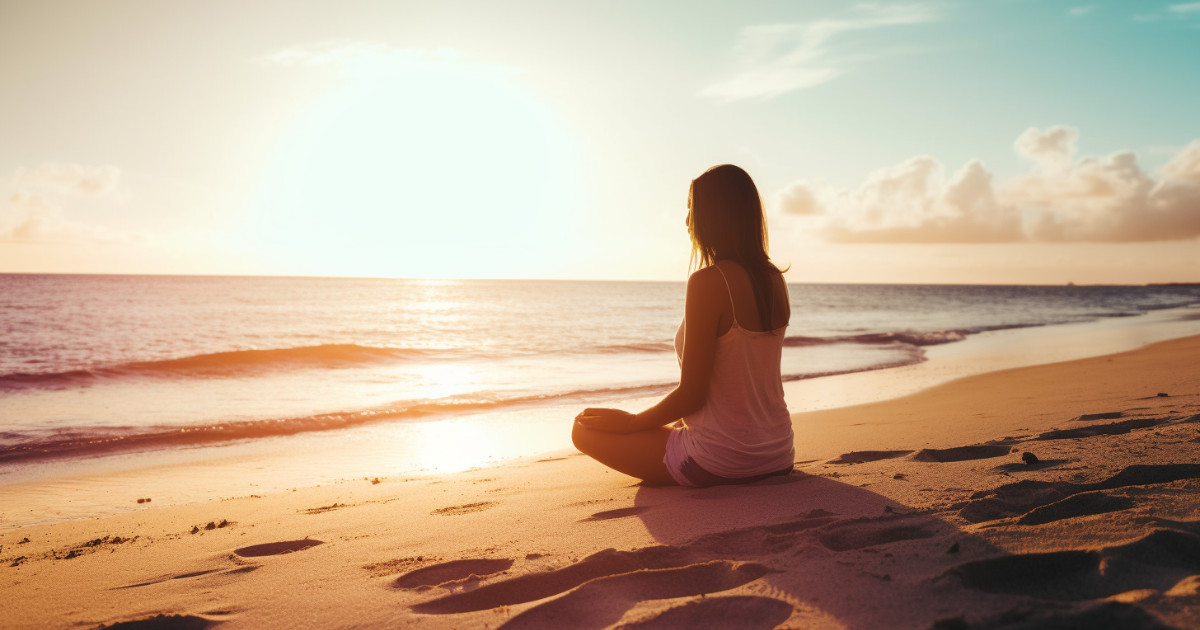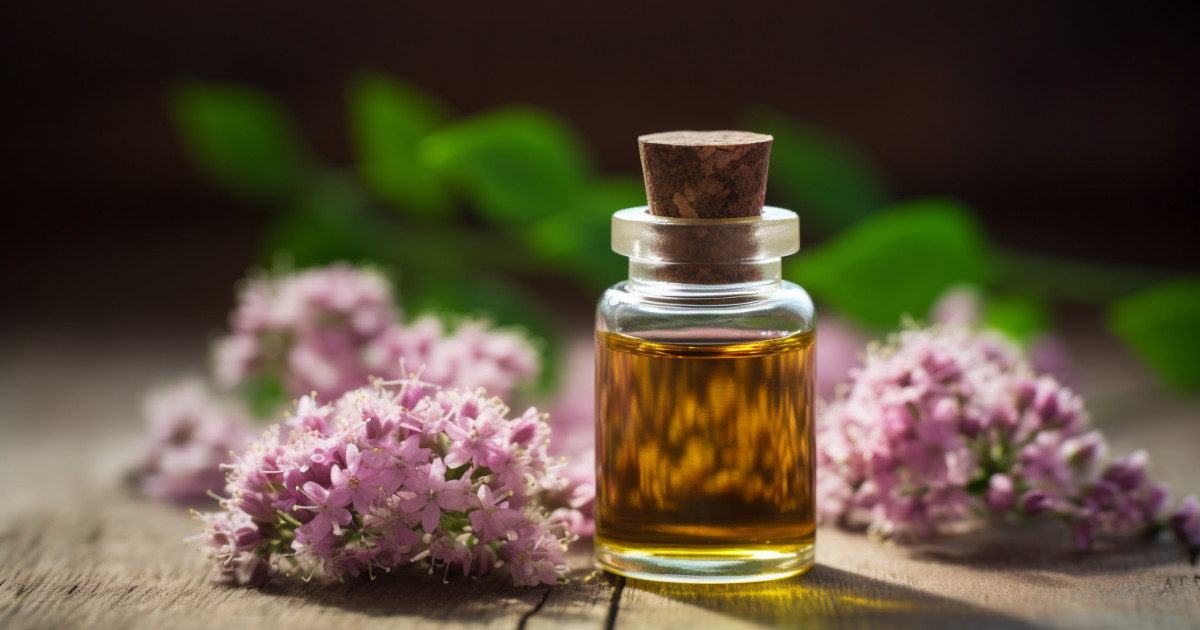Few plants have garnered as much attention and intrigue as valerian root in the vast realm of herbal remedies. With this in mind, join me as we take a closer look at the valerian essential oil side effects and benefits.
A botanical treasure with a rich tapestry of history, Valerian has journeyed through time, offering solace to ancient civilisations and finding its place in modern wellness practices.
Valerian root, known scientifically as Valeriana officinalis, has been a cornerstone in traditional medicine since the times of ancient Greece and Rome. This perennial plant, native to Europe and Asia, was historically prescribed by renowned physicians like Hippocrates and Galen to treat ailments such as insomnia. 1
Fast forward to today, and Valerian has seen a resurgence in interest, especially in its essential oil form. As a popular ingredient in modern wellness practices, Valerian essential oil is often sought after for its potential sedative properties, offering a natural solution to those grappling with nervous tension and sleep disturbances.
Table of Contents
Sources of Valerian Root
Valerian is a plant that is native to Europe and Asia and also grows in North America. Historically, valerian has been used for medicinal purposes since the times of early Greece and Rome. The roots and rhizomes (underground stems) of the Valerian plant are the parts that are primarily used for medicinal purposes.
Today, Valerian is known for its potential therapeutic properties, and its roots are often sought after for various health applications.2 3
Modern Cultivation and Harvesting Practices of Valerian Root
With the increasing demand for Valerian root in the herbal industry, common Valerian has transitioned from being primarily wild-collected, to being cultivated on a commercial scale, especially in northern parts of Europe and America.
In Poland, specific species such as ‘Polka’, ‘Norweski’, and ‘Lubelski’ have been developed for cultivation. These species, also known as landraces, are tailored to meet the high requirements of the herbal industry. 4

The underground parts of the Valerian plant are rich in sesquiterpenic acids and essential oils. The content of these compounds can vary based on the specific population of the plant. 4
The roots and rhizomes of the valerian plant are the primary parts harvested for medicinal use. The timing and method of harvesting can influence the chemical composition and potency of the final product.
By focusing on sustainable and efficient cultivation and harvesting practices, the modern herbal industry ensures a consistent supply of high-quality Valerian root for various therapeutic applications.
The HerbiTea Team have put a lot of effort into sourcing the highest quality valerian root which features in their Sleepy Tea blend. For me, knowing that they are committed to quality is a huge plus.
Common Valerian Root and Valerian Essential Oil Side Effects
Valerian root is a natural remedy often used to promote sleep. While many people find it beneficial, it’s essential to be aware of the potential side effects of valerian.
Generally, Valerian root is considered to produce fewer side effects than many other sedative or hypnotic medications. However, some individuals may experience:
- Headache 5
- Upset in the stomach like diarrhea and constipation 6
- Changes in heart rates 6
- Feeling of uneasiness 7
- Drowsiness 8
The valerian root’s effects can vary based on the dosage taken. It’s always recommended to consult with a healthcare professional before starting any new supplement, including valerian root.
10 Impressive Benefits of Valerian Oil
Despite the Valerian root and Valerian essential oil side effects outlined above, the essential oil has been cherished for centuries for its myriad of health benefits.
This potent oil, with its distinctive woody and earthy aroma, has been used in traditional medicine practices to promote relaxation, alleviate insomnia, and even combat nervous disorders. Personally, I find that goes well with Clary Sage for me. So soothing!

But the health benefits of valerian oil don’t just stop there. Let’s delve deeper into the therapeutic advantages of this nature’s elixir:
- Prevents Heart Palpitations
- Valerian essential oil has been linked to a lower occurrence of heart palpitations. The volatile compounds in this oil interact with the heart’s acids and oils, stimulating a more regular metabolic rate and calming the erratic behaviour of the cardiovascular system. However, individuals with severe heart and circulatory issues should avoid taking baths with valerian essential oil remedies. Yet, certain individuals have reported experiencing heart palpitations as a potential side effect when either using or discontinuing valerian root. It’s important to note that these accounts are anecdotal and lack a basis for formal research. 9 10
- Skin Care
- Valerian essential oil can be a help for skin health. Whether applied topically, it infuses the skin with protective oils that guard against wrinkles, and skin problems (open wounds) and also acts as an antiviral barrier. 10
- Regulates Blood Pressure
- The active ingredients in valerian root that aid in stress and anxiety relief also help regulate blood pressure. High blood pressure can strain the cardiovascular system, increasing the risk of strokes and heart attacks. Valerian essential oil can naturally mitigate these risks. 11
- Improves Cognitive Abilities
- Valerian root has been celebrated as a cognitive enhancer for ages. It stimulates various brain areas and boosts circulation, rejuvenating pathways that keep our minds sharp. It’s consumed globally by students for better academic performance and by the elderly to protect memory and delay cognitive disorders like dementia. 12
- Reduces Menstrual Cramps
- May reduce the feeling of Stress, Anxiety and Depression
- Research revealed that individuals who consumed 300mg of valerian root extract daily over a span of four weeks experienced notable decreases in brain activities linked to anxiety, especially when under psychological stress. Also, valerian root may be beneficial in alleviating anxiety symptoms stemming from sleep deprivation. 14
- Remedy for Digestive Issue
- Valerian root has the potential to induce mild to moderate oral and gastrointestinal reactions. Historically in Europe, Valerian has been employed to address digestive issues like constipation due to its ability to enhance intestinal function. However, its laxative properties can occasionally lead to undesirable outcomes, such as an upset stomach or diarrhea. 15
- Muscle Soother
- Valerian oil has a relaxant effect on skeletal muscle, potentially offering a muscle relaxant benefit with fewer side effects. 16
- May Combat Breast Cancer
- Valerian root contains valeric acid, which has shown the potential to inhibit the growth of breast cancer cells. This effect is possibly due to valeric acid’s ability to influence epigenetic gene regulation, such as inhibiting histone deacetylases. The findings suggest valeric acid could be a potential therapeutic agent for breast cancer treatment. 17
- Relieve Pain
- Historically, valerian was employed as a remedy for pain relief. 18
Valerian oil stands as a testament to nature’s profound ability to heal and rejuvenate. With its array of health benefits of valerian root, from promoting relaxation to enhancing cognitive abilities, this essential oil is truly a holistic gem.
As we continue to explore the scope of valerian essential oil’s side effects and benefits and understand its full potential, you may see why it continues to remain a beacon of natural wellness and therapeutic promise.
Valerian Tea vs Valium: Is Valium Made from Valerian Root?
Valerian tea is a natural beverage made from the roots of the valerian plant, which has been traditionally used for its calming and sedative properties, especially to promote sleep and reduce anxiety. It works by potentially increasing the levels of gamma-aminobutyric acid (GABA) in the brain, a neurotransmitter that has a calming effect.

On the other hand, Valium, or diazepam, is a prescription medication that belongs to the benzodiazepine class. It is used to treat conditions like anxiety, seizures, and muscle spasms.
Valium also affects GABA in the brain but more potently and directly. While both valerian root and Valium can induce relaxation and sedation, they differ in strength, origin, and potential side effects.
It’s essential to note that Valium is a controlled substance that can lead to dependence and should only be taken under medical supervision. 19 20
Valerian Root vs Valium; It’s a Question of Nature vs Man
Valerian root and Valium are both known for their sedative properties, but they originate from different sources and have distinct mechanisms of action.
As we have covered, Valerian root is a natural herb that has been traditionally used for its calming effects, especially to alleviate sleep disorders and reduce anxiety.
On the other hand, Valium is a synthetic drug, and it is among the most successful drugs from the onset of the psychopharmacological revolution that began during the 1950s.
It is efficacious in treating a wide range of CNS disorders, including anxiety and epilepsy. Diazepam works by being a positive allosteric modulator of the GABA A receptor complex, binding to a unique site on the alpha-gamma subunit interface.
This interaction increases neuronal chloride-ion influx upon GABA binding, resulting in hyperpolarised postsynaptic membranes, enhancing the CNS depression response to endogenous GABA. 21
While both valerian root and Valium affect the GABA system in the brain, Valium does so more directly and potently. So, the question you may be pondering at this stage is one where you are choosing between natural or synthetic.
It’s very important to understand that while valerian root is a natural remedy, Valium is a controlled substance with potential side effects and risks of dependence. Therefore, it’s essential to consult with a healthcare professional before making decisions about using either for therapeutic purposes.
Natural Valium Alternative
Natural alternatives to Valium have gained popularity among individuals seeking non-pharmaceutical solutions to anxiety, insomnia, and other conditions. These alternatives aim to provide relief without the potential side effects and dependency risks associated with benzodiazepines.
Some of the most commonly considered natural alternatives include herbal remedies like valerian root, passionflower, and kava kava. These herbs have been traditionally used for their calming and sedative properties. 22
Additionally, magnesium supplements are often recommended as they can help regulate the nervous system and reduce symptoms of anxiety. Cognitive Behavioral Therapy (CBT) and other forms of psychotherapy can also serve as effective non-drug strategies, helping individuals address the root causes of their symptoms and develop coping mechanisms. 23

Lastly, lifestyle changes, such as incorporating meditation, deep breathing exercises, and regular physical activity, can also play a significant role in managing anxiety and stress without resorting to medications.
FAQs
Is Valerian root as effective as Valium?
Valerian root and Valium (diazepam) serve similar purposes in promoting relaxation and reducing anxiety, but their efficacy can vary. Valerian root is a natural herb traditionally used for its calming effects, especially to alleviate sleep disorders and reduce anxiety.
Valium, on the other hand, is a prescription medication that belongs to the benzodiazepine class and has a more direct and potent effect on the central nervous system. While some individuals may find relief with valerian root, others might require the stronger effects of Valium.
Is Valerian a natural Valium?
No, valerian is not a natural Valium. While both valerian root and Valium can have sedative effects, they are distinct substances with different origins. Valerian root is a natural herb, whereas Valium is a synthetic pharmaceutical drug. The similarities in their names and effects can sometimes lead to confusion, but they are not the same.
What does Valerian do to the brain?
Valerian root is believed to interact with the neurotransmitter gamma-aminobutyric acid (GABA) in the brain. GABA has a calming effect on the brain’s activity, leading to relaxation and reduced anxiety. By increasing GABA levels, valerian can help promote a sense of calm and improve sleep quality.
Is Valerian safe to take every day?
For most people, valerian root is considered safe for short-term use. However, long-term safety data is limited. Some individuals might experience side effects like dizziness, headache, or digestive issues. It’s essential to consult with a healthcare professional before taking valerian daily, especially if combined with other medications or supplements.
Is Valerian root used in Valium?
No, Valerian root is not an ingredient in Valium. Valium is a synthetic drug, specifically a benzodiazepine, while valerian root is a natural herb. They are separate entities, and any similarities in their names are purely coincidental.
How much Valerian Root equals a Valium?
It’s not appropriate to equate valerian root directly with Valium as they have different mechanisms of action and potencies. The valerian root’s effects can vary based on the dosage and individual factors, while Valium dosages are standardised and prescribed by healthcare professionals.
What is a good substitute for Valium?
There are several alternatives to Valium, both pharmaceutical and natural. Other benzodiazepines, like Xanax (alprazolam) or Ativan (lorazepam), can be prescribed for similar purposes. Natural alternatives include herbs like valerian root, passionflower, and kava kava, as well as lifestyle changes such as meditation, deep breathing exercises, and cognitive-behavioural therapy.
Is Valium Natural or Synthetic?
Valium, also known as Diazepam, is a synthetic substance. It is not natural and is pharmaceutically manufactured. 24
Conclusion
In the realm of natural remedies, valerian essential oil stands out as a beacon of holistic wellness. Its myriad of benefits, coupled with its rich history, makes it a fascinating subject. Yet, like all things, it’s essential to approach its use with knowledge and understanding, especially concerning its side effects.
As we’ve journeyed through the intricacies of valerian and its comparison to pharmaceutical counterparts like Valium, it’s evident that nature offers us profound tools for well-being. But remember, every individual’s journey is unique.
We invite you to continue the valerian essential oil side effects conversation with us. Dive deeper, ask questions, and share your thoughts on the valerian essential oil side effects and benefits on Instagram and Pinterest pages. Let’s cultivate a community where knowledge meets passion, and where every story is valued. Join us, and let’s explore the world of natural wellness together!
References
- “Valerian” – NIH Staff, Last checked 6 October 2023 [National Institutes of Health] [Archive] ↩︎
- “Herbs in History: Valerian” – A. Touwaide, E. Appetiti, Last checked 6 October 2023 [American Herbal Products Association] [Archive] ↩︎
- “Valerian” – NCCIH Staff, Last checked 6 October 2023 [National Center for Complementary and Integrative Health] [Archive] ↩︎
- “Intraspecific Variability of Wild-Growing Common Valerian (Valeriana officinalis L.)” – K. Bączek, O. Kosakowska, M. Boczkowska, P. Bolc, R. Chmielecki, E. Jabrucka, K. Raj, Z. Węglarz, 9 December 2022 [MDPI] [Archive] ↩︎
- “The safety of herbal medicines in the psychiatric practice” – T. Boniel, P. Dannon, Last checked 6 October 2023 [Pubmed] [Archive] ↩︎
- “The Use of Valeriana Officinalis (Valerian) in Improving Sleep in Patients Who Are Undergoing Treatment for Cancer: A Phase III Randomized, Placebo-Controlled, Double-Blind Study: NCCTG Trial, N01C5” – D. Barton, P. Atherton, B. Bauer, D. Moore, B. Mattar, B. LaVasseur, K. Rowland, R. Zon, N. LeLindqwister, G. Nagargoje, T. Morgenthaler, J. Sloan, C. Loprinzi, 1 January 2012 [PubMed Central] [Archive] ↩︎
- “How Is Valerian Root Used for Social Anxiety?” – A. Cuncic, 14 June 2022 [Verywell Mind] [Archive] ↩︎
- “Valerian: A safe and effective herbal sleep aid?” – B. Bauer, 15 February 2018 [Mayo Clinic] [Archive] ↩︎
- “Chemical Components and Cardiovascular Activities of Valeriana spp.” – H. Chen, B. Wei, X. He, Y. Liu, J. Wang, 16 December 2015 [PubMed Central] [Archive] ↩︎
- “Valerian essential oil” – EMA Staff,5 April 2016 [European Medicines Agency] [Archive] ↩︎
- “Can essential oils help lower hypertension?” – J. Leonard, 5 December 2019 [Medical News Today] [Archive] ↩︎
- “Effect of valerian on cognitive disorders and electroencephalography in hemodialysis patients: a randomized, cross over, double-blind clinical trial” – A. Samaei, M. Nobahar, Z. Naieni, A. Ebrahimian, M. Tammadon, R. Ghorbani, A. Vafaei, 27 December 2018 [PubMed Central] [Archive] ↩︎
- “The effect of Valerian root extract on the severity of pre menstrual syndrome symptoms” – Z. Moghadam, E. Rezaei, R. Gholami, M. Kheirkhah, H. Haghani, 19 January 2016 [PubMed Central] [Archive] ↩︎
- “Valerian Root in Treating Sleep Problems and Associated Disorders—A Systematic Review and Meta-Analysis” – N. Shinjyo, G. Waddell, J. Green, 21 October 2020 [Sage Journals] [Archive] ↩︎
- “4 potential side effects of Valerian root” – Vinmec Staff, Last checked 6 October 2023 [Vinmec International Hospital Joint Stock Company] [Archive] ↩︎
- “Skeletal muscle relaxant effect of a standardized extract of Valeriana officinalis L. after acute administration in mice” – D. Caudal, I. Guinobert, A. Lafoux, V. Bardot, C. Cotte, I. Ripoche, P. Chalard, 12 October 2017 [PubMed Central] [Archive] ↩︎
- “Valerian and valeric acid inhibit growth of breast cancer cells possibly by mediating epigenetic modifications” – F. Shi, Y. Li, R. Han, A. Fu, R. Wang, O. Nusbaum, Q. Qin, X. Chen, L. Hou, Y. Zhou, 28 January 2021 [Springer Nature] [Archive] ↩︎
- “The potential of Valeriana as a traditional Chinese medicine: traditional clinical applications, bioactivities, and phytochemistry” – J. Li, X. Li, C. Wang, M. Zhang, M. Ye, Q. Wang, 21 September 2022 [Frontiers Media] [Archive] ↩︎
- “Valerian – Uses, Side Effects, and More” – Web MD Staff, Last checked 6 October 2023 [WebMD] [Archive] ↩︎
- “Diazepam” – Medline Plus Staff, Last Revised 15 May 2021 [Medline Plus] [Archive] ↩︎
- “Classics in Chemical Neuroscience: Diazepam (Valium)” – N. Calcattera, J. Barrow, 19 February 2014 [PubMed Central] [Archive] ↩︎
- “Valium Alternatives” – Alternative to Meds Editorial Team, Last checked 6 October 2023 [Alternative to Meds Center] [Archive] ↩︎
- “Diazepam Alternatives” – Alternative to Meds Editorial Team, Last checked 6 October 2023 [Alternative to Meds Center] [Archive] ↩︎
- “Benzodiazepines drug profile” – EMCDDA Staff, Last checked 6 October 2023 [European Monitoring Centre for Drugs and Drug Addiction] [Archive] ↩︎
Last Updated on 6 months by D&C Editorial Team


